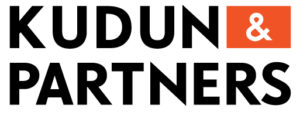The Southeast Asian nation expects multibillion-dollar infrastructure projects to drive M&A, but care is needed with foreign ownership restrictions
Thailand is continuing the trajectory of economic and regulatory development that has characterized it in recent years. In October, it jumped an impressive six places year-on-year in the World Bank’s Ease of Doing Business Index, rising from 27th to 21st out of 190 economies.
The index is judged on a number of factors ranging from taxation to licensing, and property rights to insolvency. In Thailand’s case, it is hard evidence of ongoing regulatory reforms, growing investor confidence and the government’s proactive response to shifting regional politics, maximizing opportunities for existing or would-be participants in the Thai economy.

Partner and Head of International Practice Group at
Kudun & Partners in Bangkok
Tel (Mobile): +66 85 600 6060
Email: troy.s@kap.co.th
In line with both economic growth and an improved investment environment, there has been a steady rise in both inbound and outbound M&A activity. Foreign companies are increasingly likely to seek out opportunities in Thailand, while Thai business leaders feel confident enough to view M&A as a key tool of continued growth.
There has been a number of significant transactions in the past year. Some of the most notable include the merger of TMB Bank and Thanachart Bank (TBank), which, with a value of THB156 billion (US$5.14 billion) is the Thai banking industry’s largest ever; and PTT Exploration and Production Public Company Limited (PTTEP)’s THB23.5 billion acquisition of the Bongkot gas project from Shell.
Thailand is not the only Southeast Asian country keen to ramp up M&A activity as a propeller of economic growth. According to the World Bank, it is currently the fifth-easiest Southeast Asian country to do business in, and is surrounded on the index by close competitors Japan, Malaysia and Taiwan. All of these are outdone by Hong Kong and Singapore, who rank third and second globally.
While Thailand is doing a good job of riding the global trend of elevated M&A activity and stimulating interest in its economic development, there are still regulatory hurdles that may prevent it from continuing its progress and maximizing long-term growth.
The path to success
Deal making activity in Thailand is performing well, but is largely in line with international and regional trends.
In 2018, the global M&A market grew 16% from US$3.6 trillion to US$4.1 trillion, driven by a 38% increase in “megadeals”, those with a transaction value in excess of US$10 billion. Similarly, both the number of deals and the average transaction value in Thailand have been rising continually in the past few years. This is indicative of Thailand not only attracting more deals, but bigger players with more money to spend.
Average transaction value swelled by 21% to US$48.2 million between 2015 and 2017, with deals larger than US$400 million increasing 5.5% during the same period, while the number of M&As this year is expected to jump by 23. The sectors that are benefiting the most from this uptick in deal making continue to be real estate, industrial products and energy, both renewable and non-renewable.
This consistency with global trends means Thailand is also set to mirror the slight decline in M&A activity expected for 2020. After peaking around the US$10 billion mark this year, Thai deal making will drop slightly before picking up again through the early to mid-2020s, consistent with a 25% drop in M&A activity worldwide, forecast for next year.
Moving forward, Thailand’s projected uptick in M&A activity in the next decade is supported by a range of internal and external factors, a combination of proactive planning by Thailand’s Board of Investment (BOI) and a strategic juggling act in trade relations.
Thailand 4.0
Economic development has been constant in Thailand for the past few decades, but this has not happened by accident. It is the result of three highly ambitious national strategies that have been rolled out consecutively, each targeting a particular set of industries.
Thailand 4.0 is the fourth and current stage of this development, in place since 2018. It has created fresh deal making opportunities in the 10 targeted “S-Curve” industries, designed to transform the country into a high-income, high-tech and highly developed economy:
- Biochemical and biofuels
- Digital economy
- Medical hub
- Automation and robotics
- Aviation and logistics
- Agricultural and biotechnology
- Smart electronics
- Affluent medical and wellness tourism
- Next-generation automotive
- Food for the future
US-China trade war
The ongoing trade war between the US and China has destabilized global markets and fostered uncertainty across the Asia-Pacific. However, it has also created opportunities for smaller economies.
While US President Donald Trump has near enough ordered US companies to move their supply chains out of China, with Thailand set to be one of the biggest beneficiaries, non-US investors are seeking more stable environments for their next stage of acquisitions.
In all, a lot of money is set to be redirected from China to Thailand, deepening long-term trading relations and increasing the likelihood of high-value M&As.
It’s not just external factors that are driving an increase in Thai deal making. Thailand finds itself at the epicentre of two multibillion-dollar infrastructure projects in which domestic and cross-border M&A will play a key role.
The first is China’s Belt and Road Initiative (BRI), perhaps the largest infrastructure development in history. Its location along the BRI route means that, not content with absorbing investments that would’ve otherwise gone to China notwithstanding the trade war, Thailand is also set to be a beneficiary of outbound Chinese M&A activity.
Second is the Eastern Economic Corridor (EEC) Development Plan, a US$45 billion infrastructure project along Thailand’s eastern seaboard that is set to drive even higher levels of investment in Thailand 4.0’s targeted industries.
Foreign ownership restrictions
One of the biggest obstacles for foreign firms in doing business in Thailand is the restrictions on foreign ownership under the Foreign Business Act (FBA), legislation that imposes restrictions on the conduct of a wide range of business activities in Thailand.
Schedule 1 of the FBA includes business activities in which foreign participation is strictly prohibited, with no exceptions, such as trading in antiques or other objects of historical value, news media, land trading, forestry and timber processing, and farming.
Schedule 2, which includes business activities relating to national safety or security, or which have an impact on arts, culture, local traditions, customs and folklore, handicrafts, natural resources or the environment, may only be carried out by foreigners who possess a foreign business licence from the Ministry of Commerce, and who have obtained the approval of the Thai cabinet.
Schedule 3 restricts majority foreign ownership in certain specified businesses unless they have obtained a foreign business licence from the director-general of the Department of Business Development. Schedule 3 includes accounting services, engineering services, construction services (subject to exceptions), architectural services, brokerage or agency services (subject to exceptions), the sale of food and beverages, advertising services, as well a catchall category called “other service businesses”.
The cabinet has shown some awareness of the FBA’s dissuasive potential, relaxing foreign business restrictions under schedule 3 on services provided to affiliates in three categories earlier this year following a review. These are:
- Provision of loans to affiliates and subsidiary companies;
- Lease of office space to affiliates and subsidiary companies, including public utilities; and
- Provision of consultation services relating to management, marketing, human resources, and information technology to affiliates and subsidiary companies.
In addition to the FBA, foreign ownership restrictions are found throughout other important pieces of Thai legislation. Thailand’s Land Code generally prohibits foreigners from owning land in Thailand. Under the Banking Act, foreigners are prohibited from owning more than 25% of any bank or financial institution without the approval of either the Bank of Thailand or the Ministry of Finance. Other legislation limits foreign ownership in insurance, shipping, and telecommunications.
There are also a number of important exemptions to the foreign ownership restrictions that foreign investors should investigate prior to making an investment decision. The availability or otherwise of these exemptions can make or break an investment transaction. In particular, if investment is exempted from the foreign ownership restrictions under one of the many BOI promotion schemes, substantial tax and non-tax incentives may be available to the investment project, including zero corporate income tax for specified periods, exemptions from import duties, and the right to own land.
The outlook
Thailand is an economy characterized by ambition, innovation and continual, steady growth. This growth is on the cusp of entering perhaps its most exciting phase yet, with investment opportunities aplenty for both domestic and cross-border M&A.
However, foreign ownership restrictions continue to be a considerable hurdle to the ease of doing business for international entities. A more rigorous review of foreign business regulations will be needed for Thailand to reap the full rewards of its potential.
While investors’ reluctance to engage in deal making activities where their ability to do business may be restricted is understandable, many investors view the opportunities in Thailand as far outweighing the challenges. With the correct legal advice, foreign firms should be able to navigate complex foreign ownership restrictions in a way that achieves their business objectives.

KUDUN & PARTNERS
23rd Floor, Units C and F, Gaysorn Tower
127 Ratchadamri Road, Lumpini, Pathumwan
Bangkok, 10330, Thailand
www.kap.co.th






























